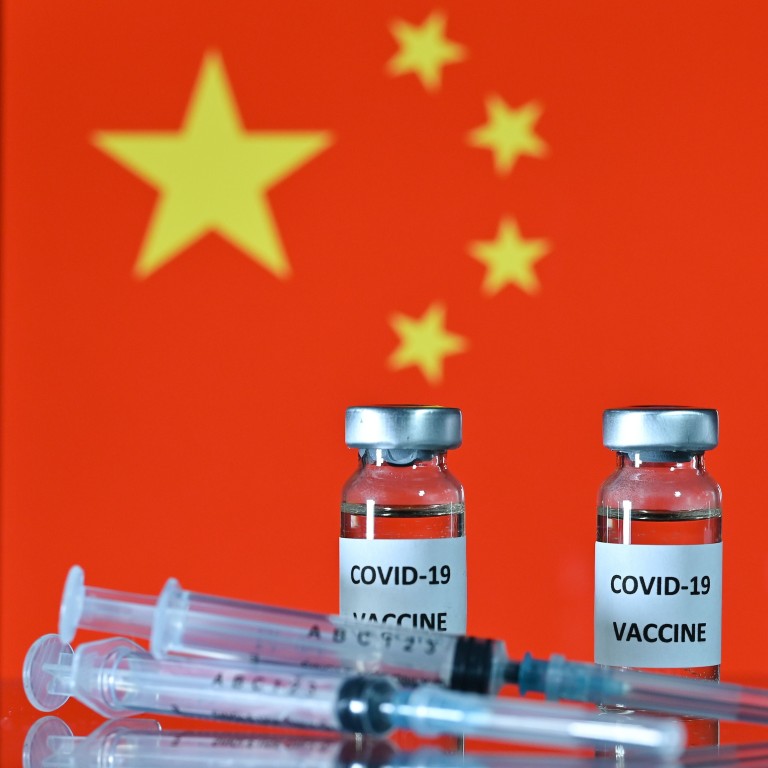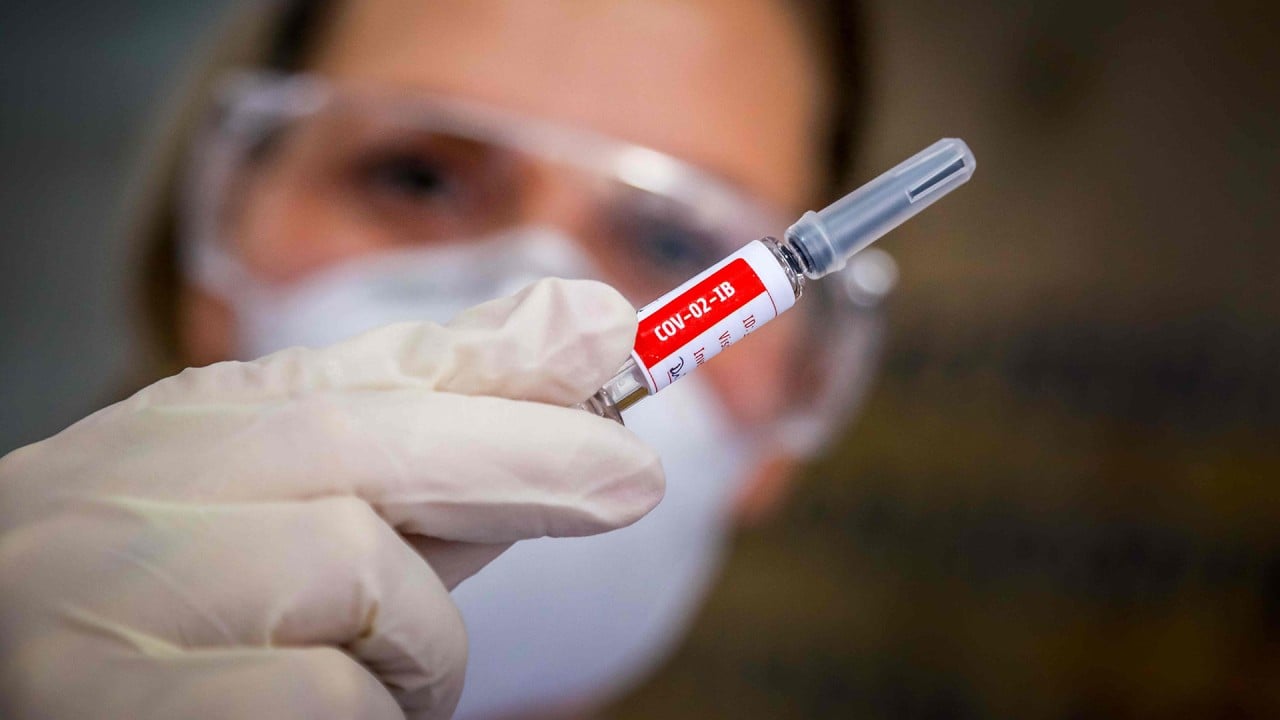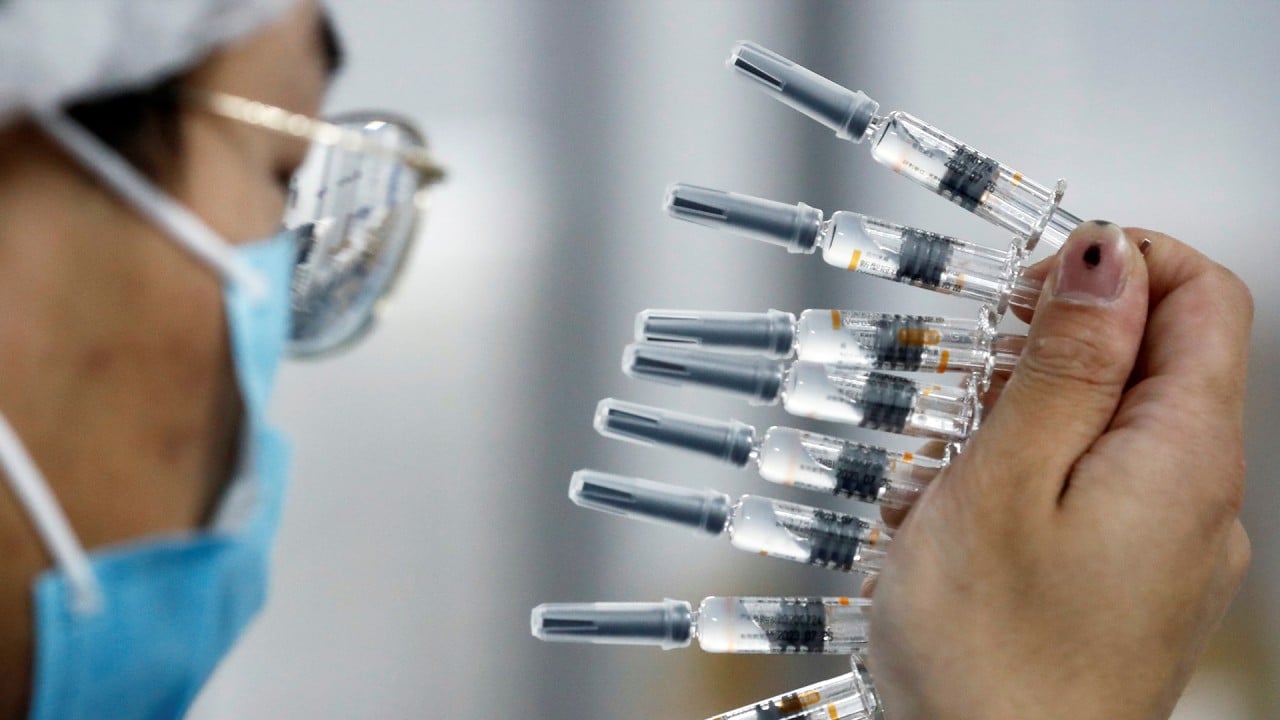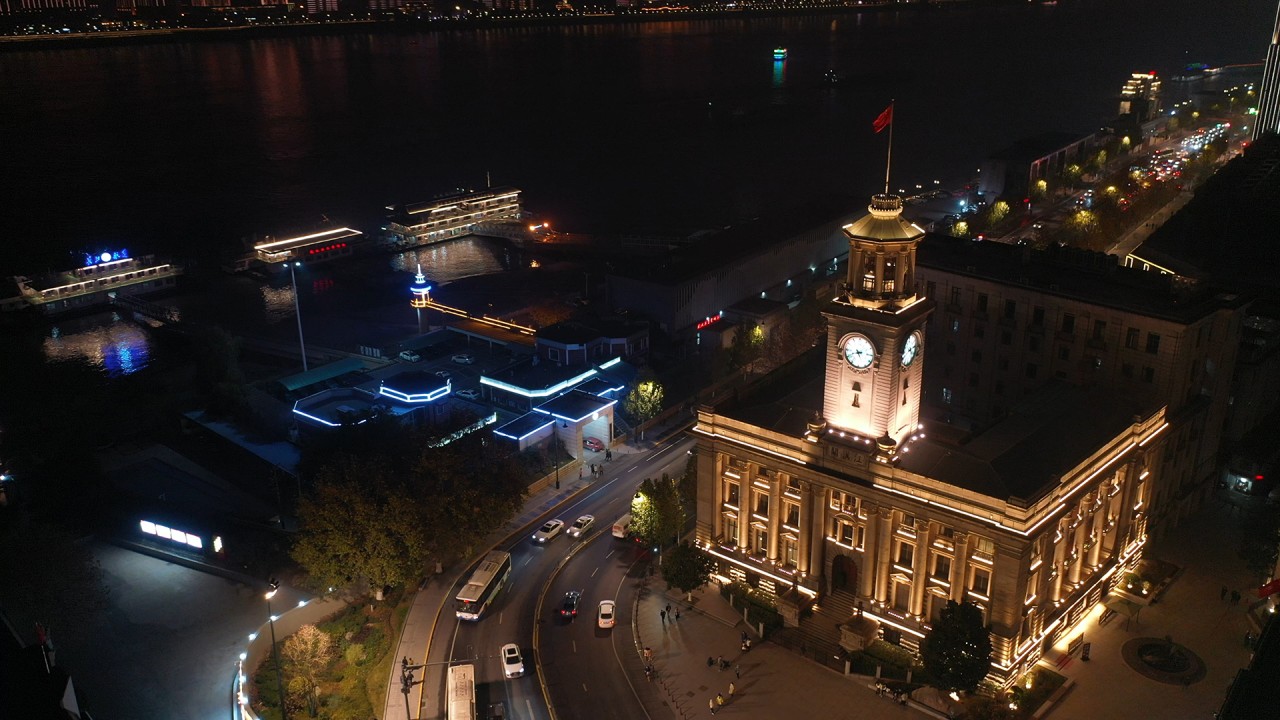
In China’s Covid-19 vaccine race, five stocks are on analysts’ watch list as clinical trials end, production anticipated
- CanSino Biologics, Chongqing Zhifei and Shenzhen Kangtai are preparing to commercialise their Covid-19 vaccine candidates, pending trial results
- Makers of ultra-low temperature freezers also stand to gain from demand for storage and transportation of vaccine doses
While major global players like Pfizer, BioNTech, Moderna and AstraZeneca are grabbing the limelight with their novel mRNA shots, those developed by mainland Chinese rivals are in high demand in emerging markets despite being behind the curve in reaching the mass-production stage.
“The Covid-19 pandemic will not be over in one year, we still need more variety of vaccines and in different formats next year or even in 2022,” said Zhao Bing, chief health care analyst at China Renaissance. “I don’t see it as a winner-takes-all scenario. It will take time to meet the needs of different markets due to affordability and logistics issues.”
The three vaccine developers have risen by 121 to 197 per cent this year, more than double the increase in the MSCI China Healthcare Index, according to Bloomberg data. The index had 81 members with a combined market cap of HK$1.1 trillion (US$148 billion) as of November 30.
The trio, together with Sinovac Biotech and two units of state-owned China National Pharmaceuticals Group (CNPG), are among companies researching 222 vaccine candidates globally, according to the World Health Organization. Fifty-six have entered clinical trials, of which 14 are in late-stage phase three, typically a step before reaching commercial production.
CanSino started a multi-centre global phase-three trial programme in September, involving 40,000 participants in nations including Pakistan and Russia. Zhifei’s candidate will be tested on 5,000 volunteers in Uzbekistan, Xinhua reported last month, part of a multi-centre programme to test 29,000 subjects starting from December.

01:50
China’s Sinovac Covid-19 vaccine proves more than 50 per cent effective in Brazil trials
Shenzhen Kangtai plans to do phase-two trials on its own vaccine candidate. At the same time, it has an agreement with AstraZeneca to conduct clinical trials and commercialisation works for the market. It has committed to providing capacity to produce at least 100 million doses by the end of 2020, rising to 200 million doses by the end of 2021.
While Sinovac is listed on the Nasdaq, the stock has been suspended from trading since February 2019 pending clarification related to a shareholding dispute. Media reports suggest its candidate has more than 50 per cent efficacy in preventing the virus during trials in Brazil and more than 91 per cent in Turkey.
CanSino last traded at HK$173, after surging as high as HK$285.80 in May. Zhifei last changed hands at 154.50 yuan, 20 per cent below its record high of 194.20 yuan in early August. Kangtai on Friday closed at 180 yuan, 7.3 per cent lower than its all-time high of 194.21 yuan reached in August.
Investors should be vigilant after the stocks’ super rallies this year, according to Kenny Tang Sing-hing, co-founder and chief executive officer of Royston Securities in Hong Kong.
“It is timely for short-term strategic bets on some of them ahead of potential positive news on their clinical trial results and order intakes,” he said. “For investors who want to invest for the longer term, I would be more cautious given uncertainty around the vaccines’ pricing and profitability.”
Unlike major foreign drug makers’ novel mRNA vaccines that have gained marketing approval, Chinese drug makers are slower in the race because they are taking different technological routes. They are also facing questions about the efficacy of their candidates and public trust due to a lack of data transparency.

02:40
If China’s coronavirus vaccines work, which countries will get them and for how much?
Overall, China’s five major producers will have a combined annual production capacity of 1.8 billion doses in 2021 – enough for 1 billion people – with a varying number of jabs required per person, according to analysts.
“Assuming a vaccine inoculation rate of 70 per cent, or 900 million people, a price of 100 yuan (US$15.29) per dose and two doses are required per year, we estimate the Covid-19 vaccine market could be worth up to 136 billion yuan,” Meng Lingwei, an analyst at China Galaxy, wrote in a report on December 5.
Meng expects CNPG and Sinovac’s Covid-19 vaccine candidates to receive Chinese regulators’ approval for general use in January, while clinical data for CanSino and Zhifei’s late-stage trials are expected to be ready for analysis in the first half of next year, according to the report.
As some Covid-19 vaccines need to be stored in ultra-low temperatures, manufacturers of freezing equipment in the pharmaceutical supply chain are also coming into play. Qingdao, Shandong-based Haier Biomedical, has recently exported some of its output to Scotland for vaccination to start this month. Another manufacturer is Shanghai-listed Aucma.

05:47
Returning to Wuhan one year since the Chinese city became ground zero of the Covid-19 pandemic
BioNTech’s vaccine, for example, needs to be stored at minus 70 degrees Celsius and needs to be thawed and prepared before use, compared to the minus 20 degrees required for Moderna’s vaccine.
Haier Biomedical last traded at 67.60 yuan in Shanghai, having risen 134 per cent year-to-date. Aucma closed at 10.05 yuan in Shanghai, capping a 124 per cent surge since the start of the year.
“As the safest and most effective means of preventing the infectious disease, the Covid-19 vaccines market’s future is bright given the recent development successes,” Great Wall Securities analyst Zhao Haoran wrote in a December 18 report. “As they are commercialised, low-temperature storage device makers will also benefit.”

